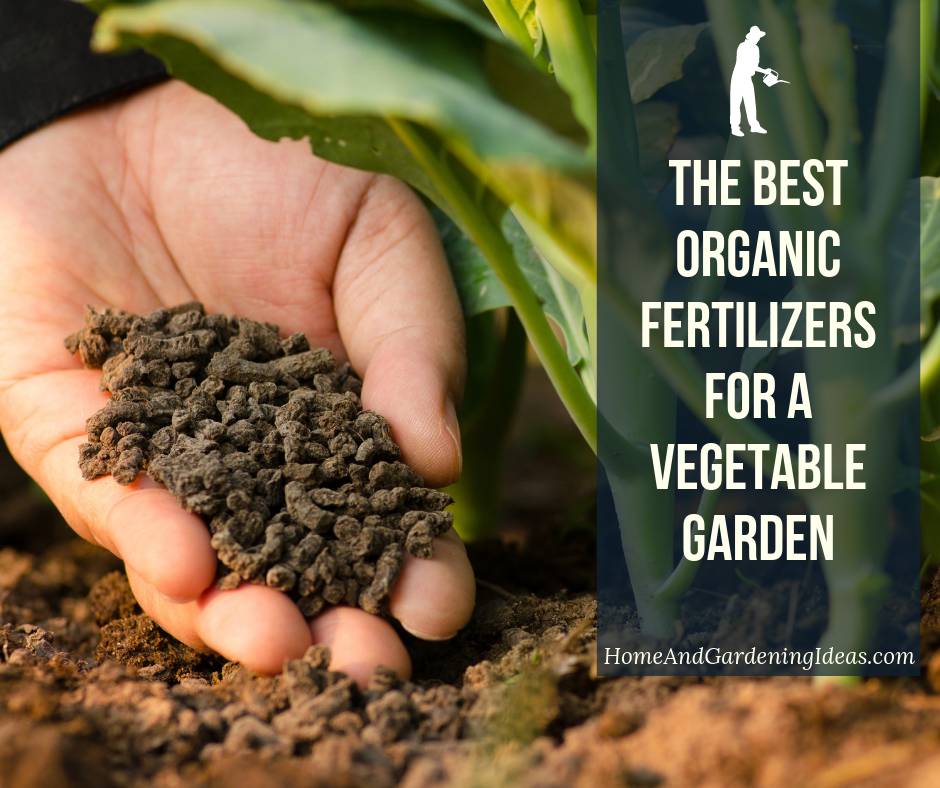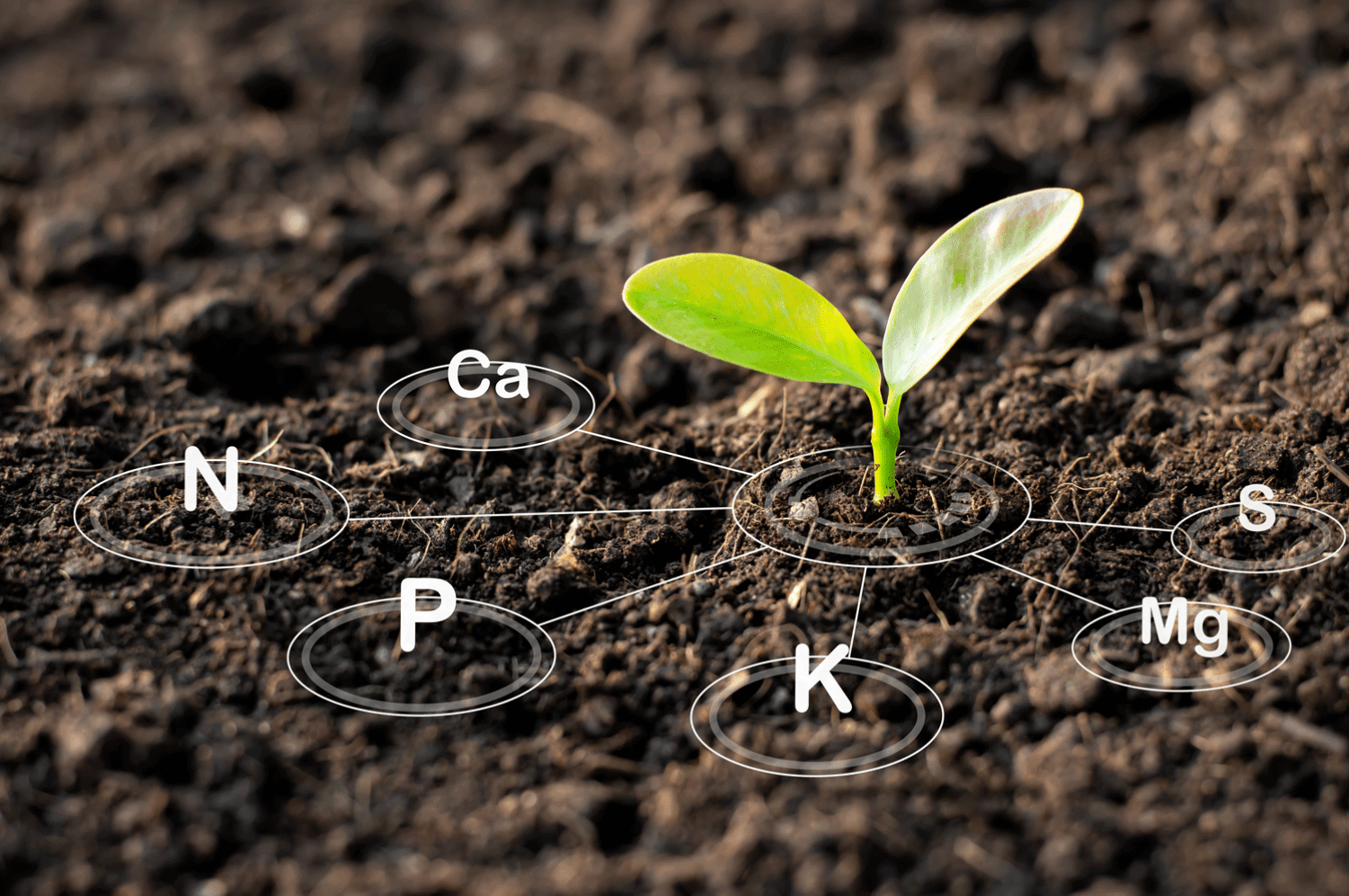Best Organic Fertilizers for Home Gardening: Nourish Your Soil Naturally

Are you looking to transform your home garden into a lush, vibrant oasis? The secret lies not just in what you plant, but in how you nourish your soil. Organic fertilizers are the unsung heroes of home gardening, providing a nutrient-rich foundation that fosters healthy growth and abundant harvests. But with so many options available, how do you choose the best organic fertilizers for your garden? Let's dive in and explore the world of organic fertilizers, from compost to DIY solutions, and discover how you can boost your soil health naturally.
Understanding Organic Fertilizers
Organic fertilizers are derived from natural sources such as plant and animal materials. Unlike synthetic fertilizers, they release nutrients slowly over time, improving soil structure and promoting long-term soil health. This slow release ensures that your plants receive a steady supply of essential nutrients, mimicking the natural cycle of nutrient breakdown in the environment.
Benefits of Organic Fertilizers
- Improved Soil Health: Organic fertilizers enhance soil structure by adding organic matter, which improves water retention and aeration.
- Nutrient-Rich: They provide a balanced mix of macro and micronutrients that plants need for optimal growth.
- Environmentally Friendly: Organic fertilizers are sustainable and reduce the risk of chemical runoff, which can harm local ecosystems.
- Cost-Effective: Many organic fertilizers can be made at home using common household waste, making them a budget-friendly option.
Top Organic Fertilizers for Home Gardening
1. Compost
Compost is the gold standard of organic fertilizers. Made from decomposed organic materials like food scraps, yard waste, and manure, compost is a nutrient-rich powerhouse. It improves soil structure, increases water retention, and supports beneficial microorganisms.
How to Use:
- Spread a 1-2 inch layer of compost over your garden beds and work it into the top 6 inches of soil.
- Use compost tea as a liquid fertilizer by steeping compost in water for a few days.
2. Manure
Animal manure is another excellent source of organic matter and nutrients. Cow, horse, and chicken manure are commonly used in gardening. However, it's important to ensure that the manure is well-composted to avoid burning plants and to eliminate potential pathogens.
How to Use:
- Apply a 1-2 inch layer of well-composted manure to your garden beds and mix it into the soil.
- Avoid using fresh manure directly on plants as it can be too strong and may contain harmful bacteria.
3. Fish Emulsion
Fish emulsion is a liquid fertilizer made from fish waste. It's high in nitrogen, phosphorus, and potassium, making it a great all-purpose fertilizer. Plus, it's fast-acting, providing quick nutrients to your plants.
How to Use:
- Dilute fish emulsion according to the package instructions and apply it directly to the soil around your plants.
- Use it as a foliar spray to provide a quick nutrient boost.
4. Bone Meal
Bone meal is made from ground animal bones and is an excellent source of phosphorus and calcium. It's particularly beneficial for flowering plants and fruit trees, which require high levels of phosphorus for bloom and fruit production.
How to Use:
- Mix bone meal into the soil before planting or apply it as a top dressing around established plants.
- Use it sparingly, as too much can raise soil pH levels.
5. Seaweed
Seaweed is a natural fertilizer that contains a wide range of nutrients, including nitrogen, phosphorus, potassium, and trace minerals. It also contains growth hormones that can stimulate plant growth and improve disease resistance.
How to Use:
- Apply dried seaweed directly to the soil or use liquid seaweed extract as a foliar spray.
- Mix seaweed meal into the soil before planting.
DIY Organic Fertilizers
Creating your own organic fertilizers is a great way to save money and reduce waste. Here are a few simple DIY options:
1. Banana Peel Tea
Banana peels are rich in potassium, which is essential for plant growth. To make banana peel tea, simply soak banana peels in water for a few days, then strain the liquid and use it as a fertilizer.
2. Coffee Grounds
Coffee grounds are high in nitrogen and can be used as a soil amendment or compost additive. Sprinkle them directly around acid-loving plants like azaleas and blueberries.
3. Eggshells
Eggshells are a great source of calcium, which is important for plant cell walls. Crush eggshells and mix them into the soil or add them to your compost pile.
Tips for Using Organic Fertilizers
- Test Your Soil: Before applying any fertilizer, it's a good idea to test your soil to determine its nutrient levels and pH. This will help you choose the right fertilizer for your garden's needs.
- Follow Instructions: Always follow the manufacturer's instructions when using commercial organic fertilizers. Over-fertilizing can harm your plants and the environment.
- Rotate Fertilizers: Different fertilizers provide different nutrients. Rotating the types of fertilizers you use can help ensure that your plants receive a balanced diet.
- Compost Regularly: Composting is a continuous process. Regularly add organic materials to your compost pile to maintain a steady supply of nutrient-rich compost.
Conclusion
Organic fertilizers are the backbone of a healthy, thriving home garden. By choosing the best organic fertilizers for your specific needs, you can enhance soil health, promote plant growth, and create a sustainable ecosystem in your backyard. Whether you opt for compost, manure, fish emulsion, bone meal, or seaweed, or decide to make your own DIY fertilizers, you're taking a step towards a greener, more vibrant garden.
So, are you ready to transform your garden into a lush oasis? Start by nourishing your soil with the best organic fertilizers, and watch as your plants flourish. Happy gardening!
FAQs
What is the difference between organic and synthetic fertilizers?
- Organic fertilizers are derived from natural sources and release nutrients slowly, improving soil health. Synthetic fertilizers are chemically produced and provide quick nutrient release but can harm soil and the environment over time.
Can I use fresh manure in my garden?
- Fresh manure can be too strong for plants and may contain harmful bacteria. It's best to use well-composted manure to avoid these issues.
How often should I apply organic fertilizers?
- The frequency of application depends on the type of fertilizer and the needs of your plants. Generally, applying organic fertilizers once or twice a year is sufficient, but some fast-acting fertilizers may need to be applied more frequently.
Can I make my own compost at home?
- Yes, making your own compost is a great way to reduce waste and improve your soil. You can compost food scraps, yard waste, and other organic materials in a compost bin or pile.
What are the benefits of using seaweed as a fertilizer?
- Seaweed contains a wide range of nutrients and growth hormones that can stimulate plant growth, improve disease resistance, and enhance soil health. It's a versatile and effective organic fertilizer.


0 Response to "Best Organic Fertilizers for Home Gardening: Nourish Your Soil Naturally"
Post a Comment